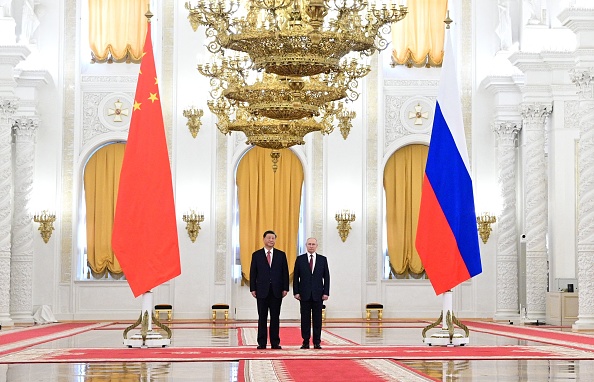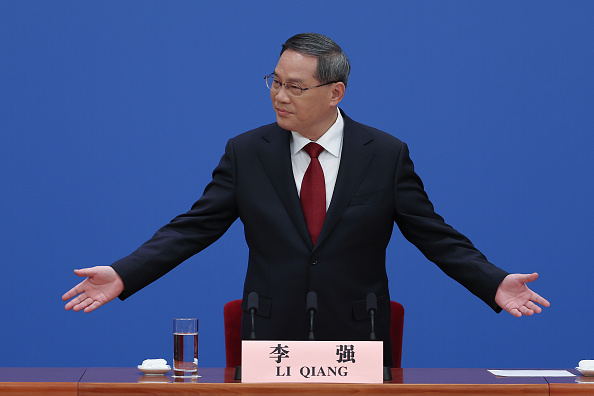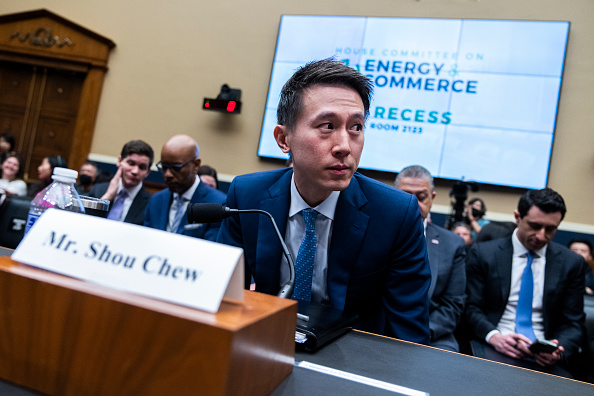
 A Changing World
A Changing WorldChinese President Xi Jinping has wrapped up a state visit to Moscow, where he held nearly three full days of talks with Russia's President Vladimir Putin. The two leaders discussed peace plans for ending the Russia-Ukraine conflict, and Xi said China was "willing to continue playing a constructive role in promoting a political settlement of the Ukraine issue."
Xi's visit sent Russia a strong signal of support, just days after the International Criminal Court issued an arrest warrant for Putin for alleged war crimes. According to Chinese state media, the two men "had sincere, friendly and fruitful talks on the bilateral ties and major regional and international issues of mutual interest."
The meeting culminated in more than a dozen agreements bolstering cooperation in areas from trade and technology to military partnerships. The leaders' central statement focused on how the two countries would "deepen" their relationship.
"In the face of a turbulent and changing world, China is ready to continue to work with the Russian side … to push forward a multipolarity and … promote the development of global governance in a more just and reasonable direction," said Xi in a closing statement.
In response to the display of unity in Moscow, the White House sought to undermine the Xi-Putin summit, expressing concern that China would be aligning with Russia at the expense of Ukraine's sovereignty. U.S. officials were also quick to point out that China's model of authoritarian capitalism would threaten to upend the global system.
"This is a marriage of convenience, not of affection, not of love … where they intersect is pushing back against the United States and our influence around the world," said John Kirby, the National Security Council's coordinator for strategic communications. "They'd like to change the rules of the game, and in each other, they see a useful foil."
Read more in "Lessons From a Year of War," by Xiao Bin, Deputy Secretary-general at the Center of SCO Studies.
 A Center of Innovation
A Center of InnovationChina is set to issue policy guidance in support of its high-tech and advanced manufacturing industries as it comes under increasing pressure from the United States, which has cited national security in restricting access to Chinese semiconductors and artificial intelligence technology.
During an interview on state radio, Premier Li Qiang said that Beijing will strengthen its policy guidance to the sector and look to create a more market-orientated environment for its businesses.
"As the situation at home and abroad undergoes complex and profound changes, the development of China's manufacturing industry is facing an important juncture and the efforts to strengthen the industry must be increased," Li said.
Li called on enterprises to "vigorously cultivate, attract and make good use of outstanding scientific and technological talent, accelerate the breakthrough of core technologies and major technical equipment, as well as create more heavyweight products and technologies on the international stage."
Li's comments echo President Xi's remarks during the National People's Congress that the manufacturing industry must always be a pillar of strength for China, which must ensure its self-reliance in technology, foster small and medium-sized enterprises and build global centers for innovation.
 Tick Tock for TikTok
Tick Tock for TikTokTikTok CEO Shou Zi Chew testified before the House Committee on Energy and Commerce in the U.S. Congress this week, addressing concerns about the Chinese-owned app's links to the Chinese government and its ability to manage "harmful" content. The hearing lasted over five hours and came amid growing calls to ban the app in the U.S. due to concerns about privacy, security, safety, and mental health.
Talks of banning TikTok in the U.S. have been in the air since 2020 when then-President Trump began an attempt to crack down on the app owned by Chinese tech conglomerate ByteDance. Over the last few months, some universities and more than 30 U.S. states have restricted access to the app, and moves have been made to ban it altogether.
China said it will "firmly oppose" any forced sale of TikTok. Beijing views some advanced technology, including content recommendation algorithms, as critical to its national interest. But legal experts believe that the Chinese government may prefer TikTok to leave the U.S. market instead of surrendering its powerful algorithm, which is thought to be critical to its success.
Despite growing concerns, a group of progressive members of Congress mounted a public defense of the app, and Rep. Jamaal Bowman (D-N.Y.) held a press conference on Wednesday evening with more than 20 TikTok creators opposing the prospective ban. Experts also warn that pulling the plug on the app could result in heavy political repercussions for the upcoming elections, though the Biden administration has threatened to boot the app unless ByteDance sells its U.S. operations to a domestic owner.
Prepared by China-US Focus editorial teams in Hong Kong and New York, this weekly newsletter offers you snap shots of latest trends and developments emerging from China every week, while adding a dose of historical perspective.
- 2023-03-17 Peacemaker Xi
- 2023-03-10 Party Time
- 2023-03-03 “An Existential Struggle”
- 2023-02-24 Opposing Worldviews
- 2023-02-17 Ripple Effects
- 2023-02-10 Ballooning Tensions
- 2023-02-03 Hot Air
- 2023-01-27 Spheres of Influence
- 2023-01-20 China's Davos Pitch
- 2023-01-13 Strategic Encounters
- 2023-01-06 Common Challenges
- 2022-12-23
- 2022-12-16 All in On Africa
- 2022-12-09 Seeking Stabilization
- 2022-12-02 Turf Tension
- 2022-11-18 Thawing Ties?
- 2022-11-11 Face to Face
- 2022-11-04 The Pacing Challenge
- 2022-10-28 Third Time’s the Charm
